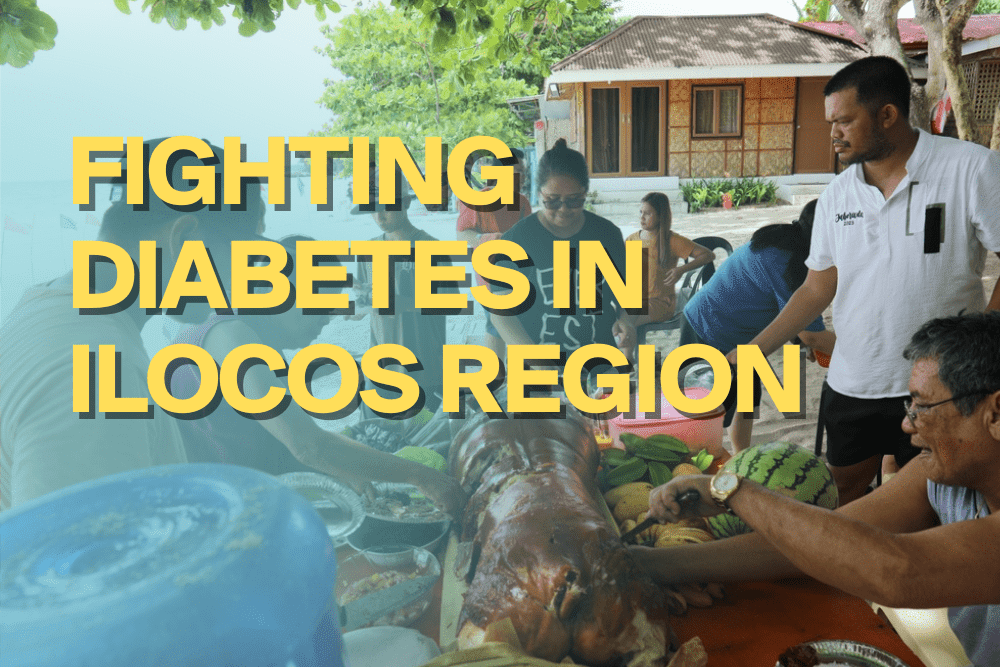The Department of Health Center for Health Development in the Ilocos Region (DOH-CHD-1) is taking proactive steps to address the increasing prevalence of diabetes in the area.
The DOH is introducing regular free mobile diabetic screening tests and health promotion initiatives. They aim to raise awareness about diabetes prevention and encourage a healthier lifestyle among the local population.
Healthy Lifestyles to Combat Diabetes
In a recent phone interview, Erwin Baclig Jr., the diabetes program manager at DOH-CHD-1, emphasised the significance of adopting a healthy lifestyle to prevent diabetes. He recommended two and a half hours of moderate to intense exercise per week. Alternatively, he suggests 20 minutes of exercise a day.
Baclig highlighted the role of physical activity in preventing obesity, a common risk factor for diabetes. He explained that physical activity aids in toxin release, supports insulin absorption, and contributes to producing essential hormones.
Baclig also cautioned against prolonged sitting, likening it to the health risks associated with smoking. Additionally, he urged the public to consider the importance of addressing major risk factors. These include physical inactivity, unhealthy diet, smoking, and excessive alcohol use.
Healthcare Access and Services
DOH-CHD-1 encourages diabetic patients in the region to avail of healthcare services at their local Rural Health Units. As part of its commitment to community well-being, the department also conducts health services missions, bringing mobile diabetic screening tests directly to various municipalities and ensuring that essential medical services are available and easily accessible.
Paula Paz Sydiongco, the dynamic director of DOH-CHD-1, highlighted the department’s commitment to prioritising healthcare access for diabetes patients. The distribution of free maintenance medicines and regular consultations complements the mobile screening tests. This will minimise the need for patients to endure the challenges of travelling to distant hospitals.
Importance of Education and Awareness
Beyond physical screenings, DOH-CHD-1 is equally invested in the power of education and awareness. Sydiongco emphasised the significance of comprehensive diabetes education, nutrition consultations, regular testing and monitoring, and effective diet and weight management. DOH-CHD-1 aims to ensure that patients have continuous access to accurate information and unwavering support throughout their healthcare journey.
Alarming Statistics
The 2022 Field Health Services Information System (FHSIS) report reveals a concerning addition of 7,174 new diabetic patients in the region in the previous year alone. The detailed breakdown includes 323 from Ilocos Norte, 902 from Ilocos Sur, 1,425 from La Union, 3,931 from Pangasinan, and 593 from Dagupan City. Notably, the Ilocos Region has recorded a staggering total of 115,112 diabetes cases from 2016 to 2022.
Conclusion
Diabetes cases continue to rise in the region. Therefore, the efforts of DOH-CHD-1 in the Ilocos Region underscore a commitment to holistic community well-being. Through a comprehensive approach encompassing preventive measures, robust health promotion, and accessible healthcare services, the department aims to empower individuals, families, and communities to make informed choices that pave the way for a healthier, diabetes-free future. The endeavour is not merely a response to a health crisis but a collective commitment to a culture of well-being and resilience within the community.

